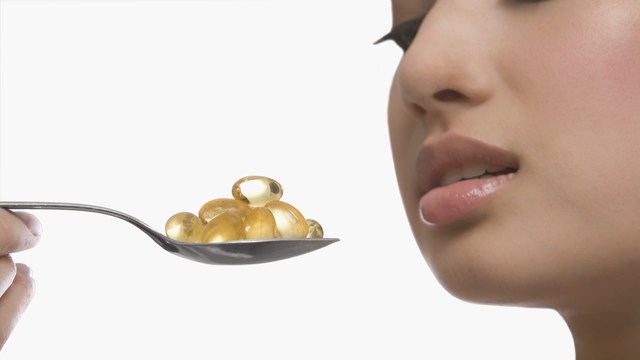The foods you eat can have a big impact on your physical health, including the health of your eyes. Lutein (LOO-teen) and zeaxanthin (zee-ah-ZAN-thin) are two nutrients that are especially important to your vision.
One of the key characteristic of lutein and zeaxanthin is their color. Both are compounds known as carotenoids which are mainly orange or red. Lutein and zeaxanthin are actually yellow pigments, but they can appear orange in high concentrations. They are found in green leafy vegetables, eggs, and other food sources. Both lutein and zeanxanthin have the ability to absorb high-energy light rays from the sun which are known as blue light. This ability helps protect the plants they are in from damage from sunlight.
Why Lutein and Zeaxanthin are used
Lutein and zeaxanthin are also found in the macula of the eye. The macula is located in the center of the retina which is the lining on the inside of the eye. When light enters the eye, it is focused on the retina. The retina converts the light energy of the image into electrical signals that are sent through the optic nerve to the brain. The macula is the center part of the retina which is responsible for clear, sharp vision needed for focusing on a page in a book or seeing clearly to drive a car.
Macular degeneration is a condition that damages the macula in the eye. This creates a “hole” in the vision where the cells in the macula have stopped working and are not able to send vision signals to the brain. Age-related macular degeneration (AMD) is the primary cause of blindness in people who are over age 65. Approximately 1.75 million people in the U.S. have AMD.
The retinas contain high concentrations of lutein. Scientists believe these compounds in the macula and retina help block or prevent damage from blue light, which may lower the risk of AMD or cataracts. Lutein may also slow down the progression of AMD in people who already have it.
Lutein and zeaxanthin are also known to be antioxidants which can neutralize free radicals. Free radicals are particles in the body that can cause damage to cells, including the cells in the lens of the eye.
Lutein may also help keep arteries clear by slowing down the progression of atherosclerosis, which can cause heart disease.
How Lutein and Zeaxanthin are used
The best sources of lutein and zeaxanthin are in the foods we eat. Green leafy vegetables such as kale and spinach, broccoli, and romaine lettuce are all good sources. Other choices include green peas, corn, carrots, green beans, and eggs.
Lutein and zeaxanthin are available as supplements in many multiple vitamins. They are also available in special “eye vitamins” that focus only on nutrients believed to be beneficial for good vision including high doses of lutein combined with other antioxidants. Researchers have not determined how much of these compounds is needed every day to maintain good vision.
Cautions for Lutein and Zeaxanthin
There are no significant risks from lutein or zeaxanthin. Some people who have eaten large quantities of carotenoid-rich foods such as carrots, or certain citrus fruits have developed a yellowing of the skin that is harmless and will go away when the amount of carotenoids in the diet is reduced.
Be sure to talk to your health care provider about all supplements you chose to take, including lutein and zeaxanthin.
Sources:
American Optometric Association
All About Vision: Lutein & Zeaxanthin
All About Vision: Age-Related Macular Degeneration
About.com: Nutrition






Add a CommentComments
There are no comments yet. Be the first one and get the conversation started!